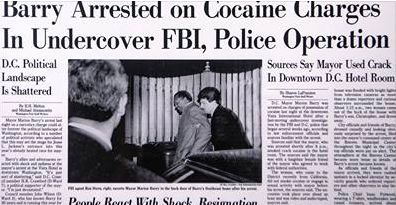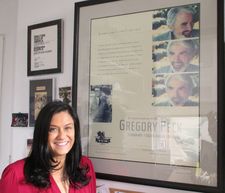
Ian Rubbish sits down with Mick Jones & Paul Simonon of The Clash to talk about the history of the band and how Ian Rubbish and The Bizzaros were influenced by them. Or was it the other way around?

Ian Rubbish sits down with Mick Jones & Paul Simonon of The Clash to talk about the history of the band and how Ian Rubbish and The Bizzaros were influenced by them. Or was it the other way around?

Updated hourly throughout the day. Keep checking back with us for the most important stuff on the web.

Gregory Berns is a professor of neuroeconomics at Emory University and the author of How Dogs Love Us: A Neuroscientist and His Adopted Dog Decode the Canine Brain. It’s available for purchase on Amazon, and you can get it at Barnes and Noble. Although this has nothing to do with his work, when pressed by David Feldman on his radio program, Dr. Berns admitted that some of his canine test subjects were racist.
David: Professor Burns, thank you for joining us.
Gregory Berns: Oh, it’s great to be here.
David: We’ll see about that. I’ve wanted you on my program ever since you wrote a piece in ‘The New York Times’ that was just fantastic. It’s entitled ‘Dogs Are People, Too.‘ I’m more of the glass is half full kind of guy, so I like to think people are dogs, too. I wish humans could be more like dogs.
You’ve scanned the brains of dogs using an MRI. You concluded that dogs have the emotional intelligence of a small child and that in the not too distant future Americans will be fighting for the rights of dogs the same way we fight for the rights of humans. Do you really believe that?
Gregory Berns: I kind of believe it. I think it’s actually already becoming a serious cause. I think San Diego has already passed laws that you can’t sell dogs from puppy mills.
David: Are people upset that you’re giving dogs MRI’s?
Gregory Berns: Yeah. I get at least an email a day that says, ‘Why are you MRI’ing dogs? I can’t get my HMO to get me an MRI.’
David: Why are you MRI’ing dogs? It is serious stuff, so why are you doing this?
Gregory Berns: Because they can’t speak.
David: And what are you trying to find, Dr. Dolittle?
Gregory Berns: I’m trying to find out how their brains work. I take it for granted that they do have some form of dog love for us that I think bears a lot of similarity to our feelings. But, because they can’t speak they don’t have human language; they can’t express it.
I’m a scientist. I’m not satisfied just to take their behaviors at face value as demonstration of that. I want to know what’s going on in their heads that make them do what they do.
David: So, you’ve found the love center, the… What is it? The…
Gregory Berns: The caudate nucleus.
David: Okay. And on the MRI, what does it look like and how do you test for love when they’re…
Gregory Berns: Yeah. Well, it’s not the love center. There is no center of love. That structure in particular we know from human studies when we see that it’s active we know that the person is anticipating something that they like and that they have a tendency to go out and get. It’s only through the specific circumstances in our experiments with the dogs that we can kind of back out by analogy what a human would be feeling when presented with exactly the same things.
David: Do dogs love one another?
Gregory Berns: Oh, that’s a good question. You know, people tell me that their dogs are best friends, but I don’t think we know that for sure. It would be kind of remarkable, because in most households the dogs are completely unrelated. So, I don’t know, but that’s something we could test.
David: The love between a dog and a human is more powerful than the love between a dog and another dog.
Gregory Berns: Yes, at least the dogs that we’re studying. But, I mean of course they all come from very good homes and their people love them, too. But, I think dogs are so socially flexible they can bond with anything, I mean any other living thing.
David: Do dogs share with other dogs?
Gregory Berns: Good question. I don’t…
David: Are they collaborative?
Gregory Berns: I don’t know the answer to that. I mean my dogs aren’t. I’ve got three dogs and they can’t agree to corner a squirrel up a tree.
David: We just lost Anya our French poodle died. She was a racist. We had a postman who was black, and she would bark sight unseen when he came to the house. When the FedEx guy came–and he was white–she didn’t bark. In the last year of her life she was completely blind. She would still bark at black people.
Gregory Berns: It’s true. We have racist dogs in our project.
David: Seriously?
Gregory Berns: Yes.
David: Okay, go ahead.

Dogs more racist towards blacks than whites, but there’s no explanation as of yet. Cats, on the other hand, are just cute assholes.
Gregory Berns: I won’t name names. I’m not going to call anyone out. But, there are a couple of dogs in our project who start barking exactly the way you said. So we have to take a lot of care when they’re here at the facility and we’re scanning them. We have to put a sign on the door that says dog scanning in progress and please don’t enter.
David: I would assume that dogs have been trained to be racist.
Gregory Berns: I wouldn’t assume that. The only assumption I make is that dogs can distinguish people by their skin color. For whatever kind of past associations the dog has with skin color, it manifests. The dogs that behave that way have all been rescues.
David: Will they be racist against whites, or is it strictly black people?
Gregory Berns: Well, I assume it could go both ways. I haven’t seen any dogs in our project racist against white people. Well, you know, who knows? We have some dogs that just don’t like strangers regardless of their color.
Gregory Berns is a professor of neuroeconomics at Emory University and the author of How Dogs Love Us: A Neuroscientist and His Adopted Dog Decode the Canine Brain. It’s available for purchase on Amazon, and you can get it at Barnes and Noble.
What do you think? Have you ever encountered a racist dog? I’d like to know. Please share your comments below.

Here you go Fox And Friends. Your lead story for tomorrow. Run with it.

Michael Snyder, our resident film critic, stops by every once in a while to tell us what documentaries we should be catching. Today, he has two.
Listen to the original broadcast
David: Hello Mr. Snyder. First up, The Act of Killing.
Michael: Well, this is a fascinating, disturbing and wildly original documentary by a director named Joshua Oppenheimer, who decided to do something about the mass extermination of people in Indonesia in 1965 that was initiated by a military coup.
People in charge gathered together a bunch of gangsters and set them out to basically cleanse the country of what they said were Communists, and the Communists could be anything from farmers to poor people to genuine dissidents.
Michael: This film goes back to Indonesia and finds these now elderly killers and asks them to explain the how and the why of the murders that they committed and also to reenact them for the camera.
Michael: These guys, apparently, a number of them really love the American movies, and they’re given an opportunity to play act these incidents of killing and torture, and basically try to justify what they did when they did it and express very little remorse. Some of these guys killed hundreds of people, literally hundreds of people, each individually. One guy in particular, Anwar Congo, has bad dreams, and a lot of it must be guilt.
David: Does he know that he’s guilty?
Michael: Oh, absolutely. But it doesn’t change the fact that they did it and they tried to justify what they did. Even today, people are frightened of them as we see in the course of their filming and interacting with actual citizens of the northern Sumatra area.
It’s pretty astonishing stuff.
David: After Suharto fell in 1998 did Indonesia have any truth in reconciliation? Did any of these guys go to prison for these atrocities?
Michael: No. No, absolutely not. They walk the streets, they’re still feared and/or admired or cowed before. It’s a phenomenal film, and it’s surreal in places. There’s one particular kind of production number involving the music from the film Born Free with dancing girls and what looks like a gigantic fish. I can’t even – it is like nothing I’ve seen before. It’s disturbing, it’s phenomenal. It’s as if somehow, the Nazis were given a pass and were still around today and were kind of basically strutting down their street in their hometown and nobody gave a damn.
David: Maybe it’s time for another documentary where Henry Kissinger reenacts all the murders he’s committed in Indonesia’s East Timor and Cambodia.
Michael: There’s enough horror on the screen with these old Indonesian gangsters. You’ll be stunned, honestly.
David: And they’re proud of it?
Michael: Oh, yeah, absolutely. And one guy is just happy that he got away with it, another guy is somewhat tormented, some say you just can’t allow yourself to embrace any guilt in the issue. And there’s one guy, he was the stepson of a Communist whose stepfather just disappeared. They took him away. And what’s really remarkable about this is the palpable fear he still has in the presence of these old gangsters.
David: And ‘gangsters’ is the word for them?
Michael: Yeah. They actually wear it proudly.
David: And they live well, right?
Michael: I don’t know how standards of living are over there, but yes, fairly comfortably.
There’s also a very perverse moment when Anwar is with what appears to be grandchildren and he’s being gentle about a wounded duck, and meanwhile, completely callous about the people that he killed. One guy talks about walking through the city and encountering Chinese Communists, or people he perceived of as Chinese Communists, and just stabbing them one after another, just going on a tear.
David: President Obama lived in Indonesia for a while, didn’t he?
Michael: He may not have known these guys.
David: Maybe he’s responsible for this. OK, Running From Crazy.
Michael: Well, it’s basically a documentary about Mariel Hemingway and her fear of the emotional, psychological and genetic legacy that has led to at least two suicides in her family and a mentally disturbed elder sister. Mariel’s sister, Margaux, who was an actress and a model, took her own life and was a lovely, vibrant woman.
Mariel seems to have her head screwed on straight and she’s trying to keep her life together, and the camera follows her through her life and she talks about the past. There’s video footage shot by Margaux, and there’s a lot of discussion of the entire family, including Mariel and Margaux’s grandfather, the great author Ernest Hemingway, who had plenty of problems of his own.
Michael: The director is Barbara Kopple, who did Harlan County, USA, American Dream, and a lot of other pretty renowned, award-winning documentaries. It appears to have been partially financed I think by OWN, or has been shown on OWN, Oprah’s network. But it’s a beautiful depiction of someone basically plowing forward with her life, making sure she’s going to do the very best she can to keep it together. She’s wonderful in that.
David: And she’s turned to yoga and eating properly, and she has either a boyfriend or a husband?
Michael: She seems like a good person. She seems like someone who has her head screwed on. But it’s interesting to hear her reflect on her family and see the footage from the past, and realize that she’s grappled with tragedy and a fear of her own mind crumbling for much of her adult life. And it’s powerful in its own way. Reflecting on the past can actually prepare you for the future or completely turn your life around. This movie is about family bravery in the face of what could be destiny, genetic destiny, if you will.
David: Great. Michael Snyder, thank you for joining us.
Listen to the original broadcast
What do you think? Join the conversation below?

You watch football, we’ll watch everything else.